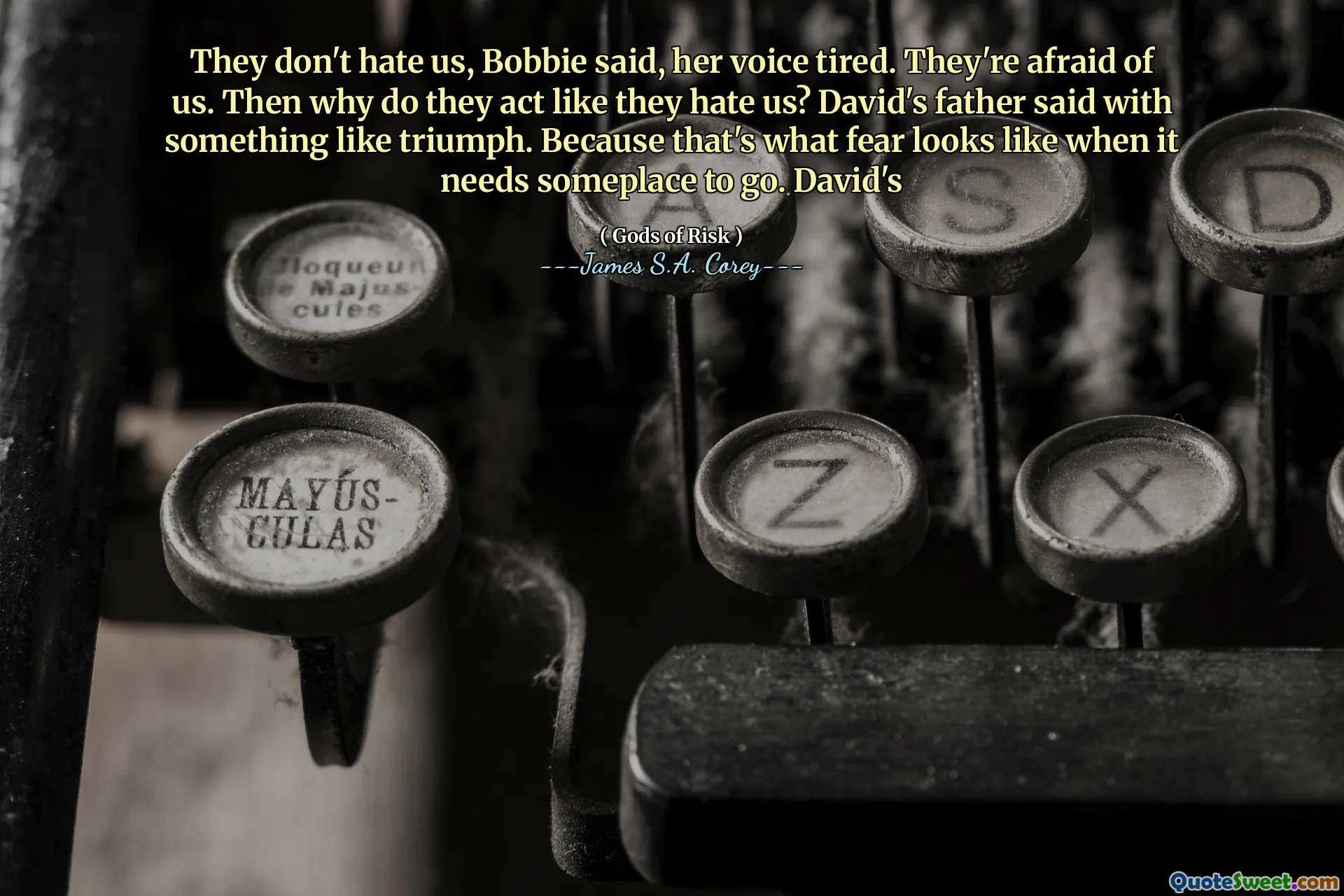
They don't hate us, Bobbie said, her voice tired. They're afraid of us. Then why do they act like they hate us? David's father said with something like triumph. Because that's what fear looks like when it needs someplace to go. David's
This excerpt explores the complex emotional landscape of misunderstanding and fear. The characters dissect the perception of hatred versus fear, illustrating that the outward manifestations of hostility may often stem from internal insecurity and panic. When someone acts as if they hate us, it might be an external expression of their internal fear — a defense mechanism to mask vulnerability or uncertainty. This idea resonates deeply because fear tends to distort perceptions, making others seem threatening when they are, in reality, just as scared or vulnerable themselves. It invites reflection on how human beings often misinterpret emotional signals, leading to conflicts rooted more in insecurity than genuine animosity. The dialogue underscores that understanding the roots of fear can be pivotal for empathy. If we recognize that hostility may be a symptom rather than the illness itself, perhaps we can approach such situations with greater compassion. In the broader context of social and political interactions, this quote emphasizes the importance of addressing underlying fears rather than merely reacting to their surface expressions. It beckons us to develop awareness that hostility often disguises deeper vulnerabilities. The recognition that chaos and conflict might spring from internal struggles rather than external malice urges a more nuanced approach to conflicts, emphasizing dialogue over confrontation and empathy over suspicion. The insight shared between Bobbie and David's father encapsulates a universal truth: compassion and understanding can be powerful tools to quell fear and bridge divides, fostering a more tolerant and empathetic society.






